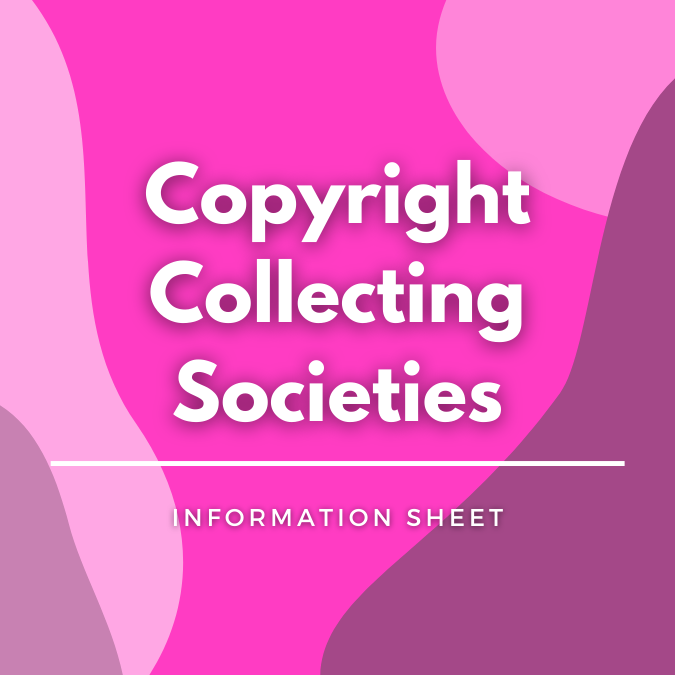Artist and Art Centre – Contract Template – Information for Artists
This Information Sheet explains when and how to use the Arts Law contract template Artist and Art Centre Agreement.
Is this the right contract for me?
The Artist and Art Centre Agreement is for Aboriginal or Torres Strait Islander artists who have an ongoing relationship with an Art Centre. The Art Centre might represent the artist, promote the artist and the artist’s artwork, and arrange sales of artwork. If this sounds like you, this information sheet explains some important aspects of the contract to help you decide if it is right for you.
You and the Art Centre should discuss and agree on each term of the contract and what additional information you need to include. This information sheet will help you understand the different parts of the contract and what information to include. Most of the information you’ll need to add to the contract is to Schedules 1 and 2 (the pages at the very end of the contract).
What must I do under the contract?
If you and the Art Centre agree that they are the only organisation that can sell your work, you will have an ‘exclusive’ relationship with the Art Centre. This means you must give all your art to the Art Centre to display, promote and sell. You must also let the Art Centre know when you create a new work and deliver it to the Art Centre to sell. You cannot sell your art to anyone else or ask anyone other than the Art Centre to sell your art.
If you and the Art Centre agree that they are not the only organisation allowed to sell your work, you will have a ‘non-exclusive’ relationship. This means that you can deal with other galleries and buyers to display, promote and sell your work. Your agreement should include details about how this non-exclusive arrangement will work. For example, are there certain kinds of artworks you will or will not give to the Art Centre? Or will you make this decision based on each artwork you create?
If you have existing artworks that you want the Art Centre to sell on your behalf, you should provide details of this in Schedule 2 of the agreement.
Signing the agreement does not mean you have to produce a certain amount or type of artwork. You will always have freedom to create the type of art you want to create.
What must the Art Centre do under the contract?
The Art Centre must do many things under the contract, including:
- Promoting your artwork and you as an artist (such as by organising exhibitions and placing your work on consignment with other galleries or entering your work in prizes and competitions).
- Representing you in all art dealings (such as in sales or business matters).
- Providing a safe space for you to create and store your artwork.
- Providing free art supplies (such as paint and canvases).
- Insuring your artwork in case it is damaged, stolen or lost.
- Taking other steps to protect you and your artwork, which are set out in the agreement.
The Art Centre must also provide written reports at least every six months about the details of the artwork in their possession, any sales it has made and promotional activities it has undertaken on your behalf. You can ask the Art Centre to give you a copy of these reports.
How will I be paid?
For each artwork that the Art Centre sells on your behalf, you will be paid the sale price minus the commission paid to the Art Centre and possibly to a gallery.
The Indigenous Art Code recommends that an artist be paid within 30 days of the sale of their artwork. This is reflected in the contract template, and you and the Art Centre can agree to increase or decrease this time period and change the contract to show this. You should also insert the amount of interest the Art Centre must pay to you on any late payments.
What is commission?
Commission in this context is the percentage of the sale price that the Art Centre will keep when it sells one of your artworks. It is a fee that you pay in return for the Art Centre promoting you and your work and providing you with other services under the agreement.
If you allow the Art Centre to give your art to other galleries to sell (which is called a ‘consignment’), the other gallery will also take a commission. You can ask the Art Centre if they might reduce their own commission in this circumstance.
You should insert details about commission in Schedule 1 of the contract, under ‘Art Centre Commission’ and ‘Other Gallery Commission’.
Different commission percentages can be paid to the Art Centre for different things e.g. if they have sold an artwork for you or have licensed your artwork when the commission could be taken from royalties for the licence. These need to all be made clear in Schedule 1.
What are my intellectual property rights under the agreement?
Copyright
The agreement states that you own the copyright in the artwork as the sole creator of the artwork. If you created the artwork as part of your employment, created it for the government, or you have a contract about the copyright in the work, you may not own the copyright. If you made the artwork with someone else, you may share it with your co-creators. In this case, you should get legal advice about who owns the copyright. Arts Law can help.
Royalties
You authorise the Art Centre to register you with a copyright collecting society, such as the Copyright Agency, and to collect royalties on your behalf to then pay to you. Royalties are fees you can be paid if someone wants permission to use your artwork.
Promotion of you and your work
You give the Art Centre permission to take and use photographs of you and your work to promote you, your artwork, the Art Centre, or a particular exhibition.
What if my art contains Indigenous Cultural and Intellectual Property (ICIP)?
If your artwork contains your community’s cultural or traditional knowledge, often referred to as Indigenous Cultural and Intellectual Property (ICIP) the contract assumes that you have permission from your community to display, sell and reproduce ICIP through your art.
You should also tell the Art Centre if there is any ICIP in your artwork. This is because the contract requires the Art Centre to display a notice beside the artwork stating that it contains traditional cultural knowledge. The notice also informs people about how to find out about permitted future use of the artwork.
For more information, see the Arts Law | Artists in the Black information sheet on ICIP.
Does the Indigenous Art Code apply to my contract?
The contract refers to the Indigenous Art Code (the Code). The Code sets standards of ethical behaviour for Art Centres and galleries in the way they deal with Aboriginal and Torres Strait Islander artists and artworks.
The contract complies with the Indigenous Art Code. It assumes that the Art Centre you are dealing with is a member of the Code, but you should check this with the Art Centre. You can also search the Code’s website to see if the Art Centre is listed as a ‘Dealer Member’.
Under the Code, the Art Centre must provide you with a copy of the Indigenous Art Code before you sign the agreement.
Ending the agreement
How long is the agreement?
The ‘term’ of the agreement, or how long you are in a contract with the Art Centre, is completely up to you and the Art Centre to decide. If you do not know how long you want the agreement to last, you do not have to decide. Instead, the contract templates says that you or the Art Centre can decide to end the agreement at any time and without giving any reason, by providing three months’ notice in writing. Otherwise, it will continue.
What if I change my mind?
You can end (or terminate) your agreement within 14 days of signing the agreement if you decide you made the wrong decision. This is called the ‘cooling off period’. If you change your mind after 14 days, you can still end the agreement at any time by giving three months’ notice in writing.
What if one of us breaches the agreement?
If you or the Art Centre do not fulfil your end of the bargain, this is a ‘breach’ of the agreement. The other party can then tell the party in breach about it and give them 28 days to fix the problem. If the issue is not fixed, the other party can end the agreement immediately.
What happens after the agreement ends?
If you end the agreement within the cooling off period, you can collect your artwork from the Art Centre and sell it elsewhere. Otherwise, even after the agreement ends, the Art Centre has the right to keep and sell the artwork in its possession, but it must pay you for all sales.
What if I have a complaint?
Contact the Art Centre’s complaints officer (who may be the manager). This person is responsible for trying to resolve any complaints that you have.
If a complaint cannot be resolved this way, the agreement says that the parties will use Arts Law’s dispute resolution guidelines. If necessary, Arts Law will suggest an independent mediator to talk to both parties and attempt to resolve the dispute.
What if I’m still unsure?
Arts Law | Artists in the Black provides legal advice on draft agreements and contracts. Before signing a contract, you may wish to contact Arts Laws for further advice.
If you have questions about any of the topics discussed above, please contact Arts Law.
© Arts Law Centre of Australia 2012, last reviewed 2024
Disclaimer
The information in this information sheet is general. It does not constitute, and should be not relied on as, legal advice. The Arts Law Centre of Australia (Arts Law) recommends seeking advice from a qualified lawyer on the legal issues affecting you before acting on any legal matter.
While Arts Law tries to ensure that the content of this information sheet is accurate, adequate or complete, it does not represent or warrant its accuracy, adequacy or completeness. Arts Law is not responsible for any loss suffered as a result of or in relation to the use of this information sheet. To the extent permitted by law, Arts Law excludes any liability, including any liability for negligence, for any loss, including indirect or consequential damages arising from or in relation to the use of this information sheet.
© Arts Law Centre of Australia
You may photocopy this information sheet for a non-profit purpose, provided you copy all of it, and you do not alter it in any way. Check you have the most recent version by contacting us on (02) 9356 2566 or tollfree outside Sydney on 1800 221 457.
The Arts Law Centre of Australia has been assisted by the Commonwealth Government through the Australia Council, its arts funding and advisory body.




